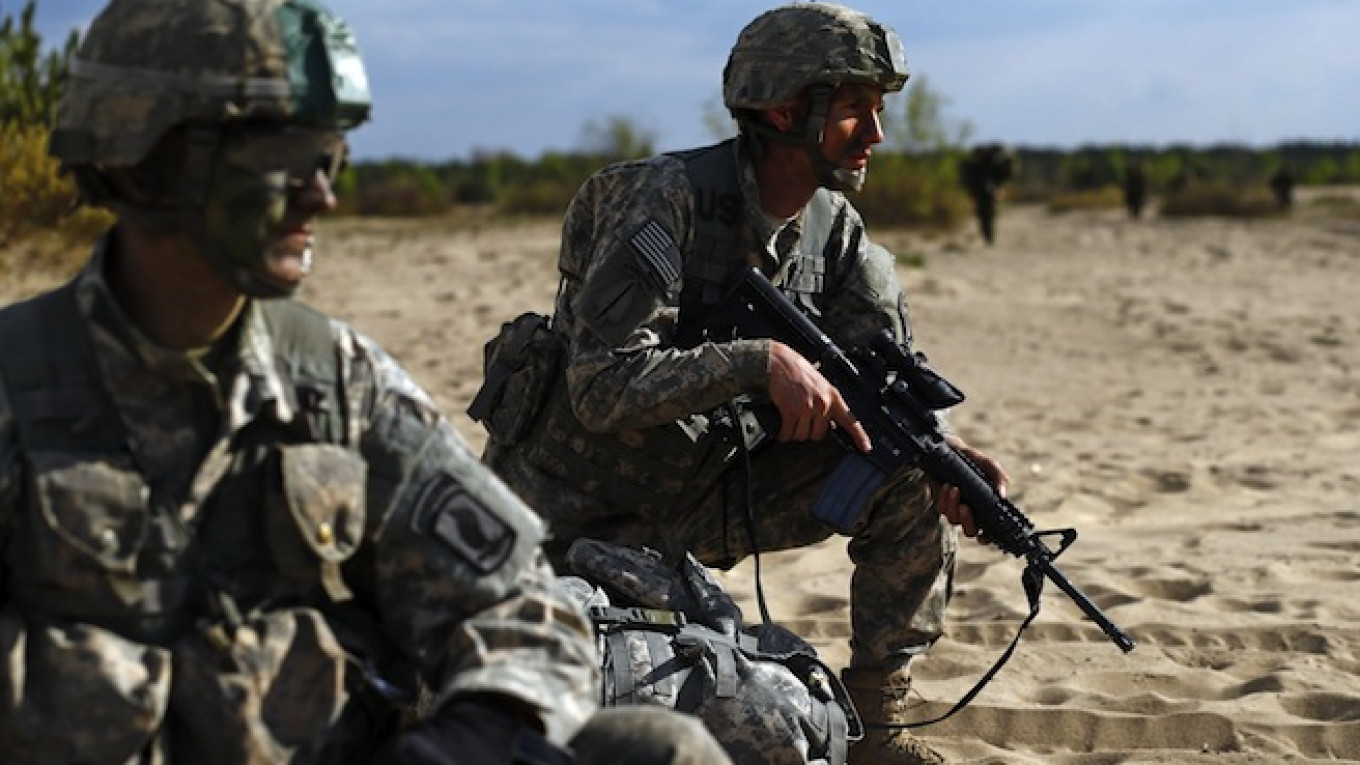NATO would struggle to defend the Baltic states from any Russian aggression "with conventional means," a news report said, citing sources close to the organization and a draft of a NATO planning document.
Eastern European states are nervous about Russia after it annexed Ukraine's Crimea region and massed 40,000 troops on Ukraine's borders.
The U.S. has sent 600 soldiers to the three Baltic countries — Estonia, Latvia and Lithuania — and Poland to take part in exercises to bolster NATO's presence in eastern Europe.
"Russia's ability and intention to undertake significant military action without much forewarning poses a far-reaching threat for the maintenance of security and stability in the European-Atlantic area," Germany's Spiegel magazine said, citing a NATO defense planning committee document.
Russia is capable of building up a local or regional military threat at short notice and at an arbitrary spot, the draft document continued.
However, Europe at the end of the Cold War had concluded that "it could reduce its capabilities for fighting conventional, large scale and high intensity conflicts in Europe".
"While we never comment on alleged leaks or on our defense plans, NATO's core task is collective defense and we will do what it takes to defend any ally under attack," said NATO spokeswoman Oana Lungescu.
"In light of the new security situation created by Russia's illegal and illegitimate aggression against Ukraine, we have taken immediate measures to enhance collective security in the air, at sea and on the ground."
The Ukraine crisis has compelled the alliance to refocus on its core mission of defending its members after years in which its main effort has been far away in Afghanistan.
A Message from The Moscow Times:
Dear readers,
We are facing unprecedented challenges. Russia's Prosecutor General's Office has designated The Moscow Times as an "undesirable" organization, criminalizing our work and putting our staff at risk of prosecution. This follows our earlier unjust labeling as a "foreign agent."
These actions are direct attempts to silence independent journalism in Russia. The authorities claim our work "discredits the decisions of the Russian leadership." We see things differently: we strive to provide accurate, unbiased reporting on Russia.
We, the journalists of The Moscow Times, refuse to be silenced. But to continue our work, we need your help.
Your support, no matter how small, makes a world of difference. If you can, please support us monthly starting from just $2. It's quick to set up, and every contribution makes a significant impact.
By supporting The Moscow Times, you're defending open, independent journalism in the face of repression. Thank you for standing with us.
Remind me later.






